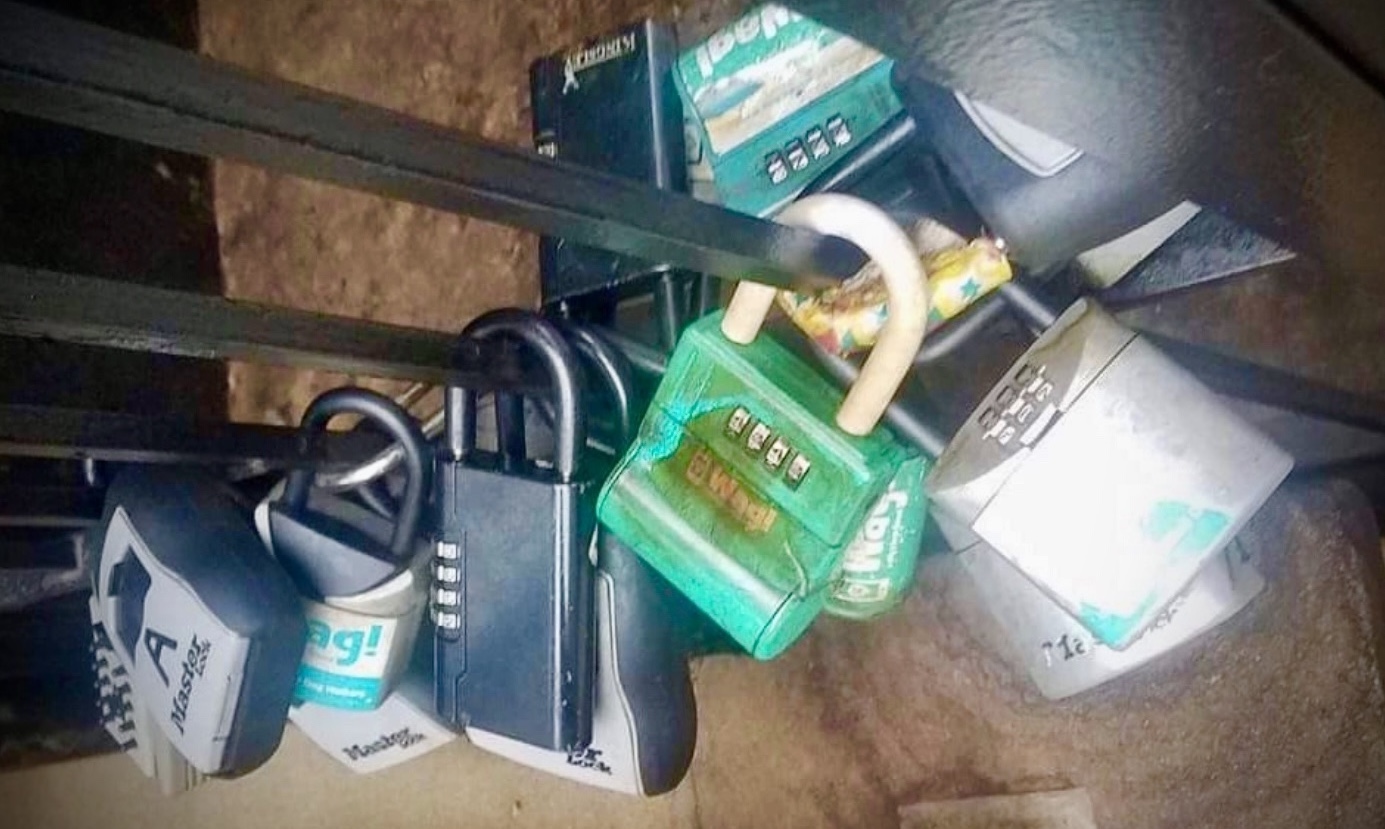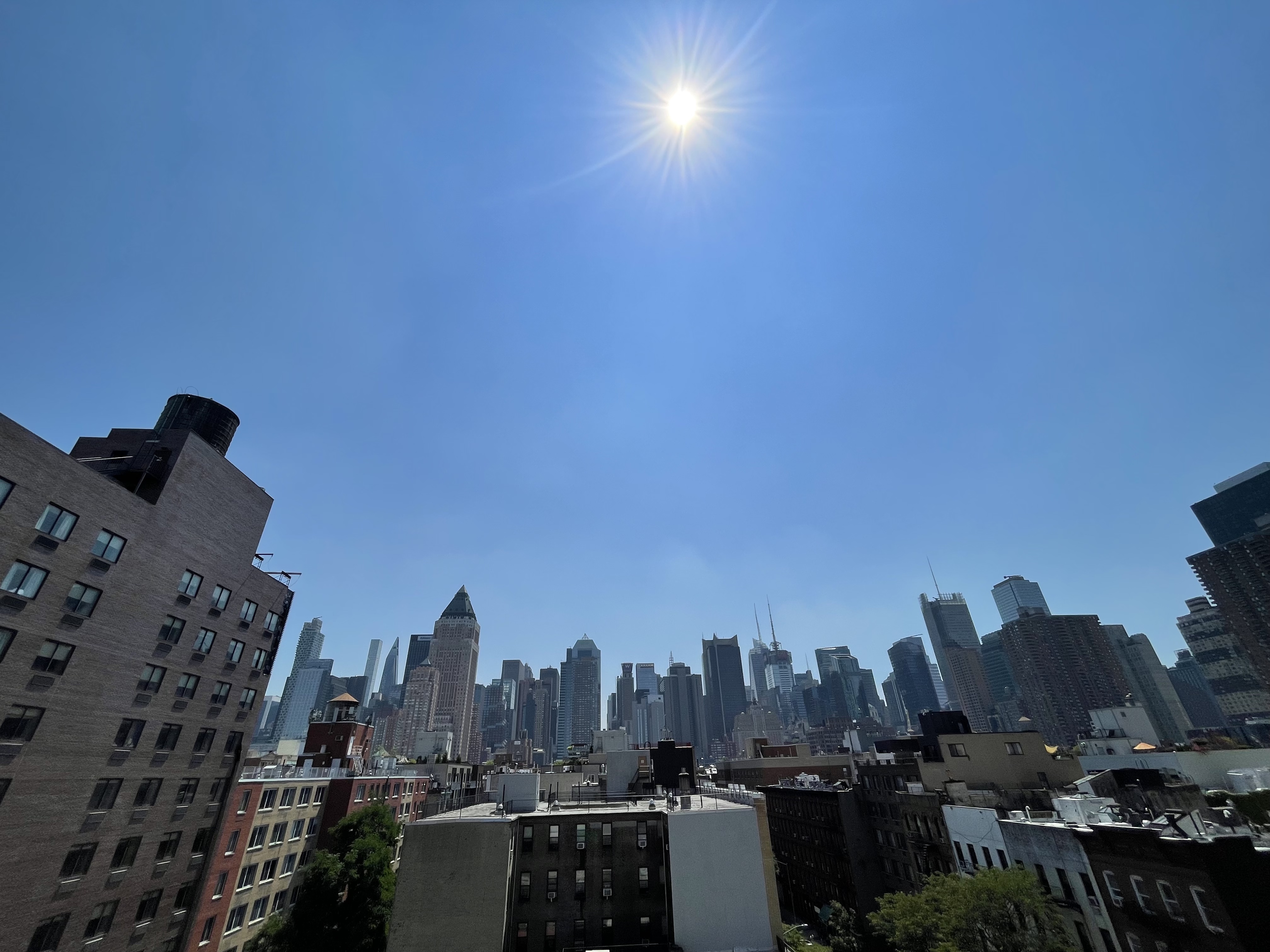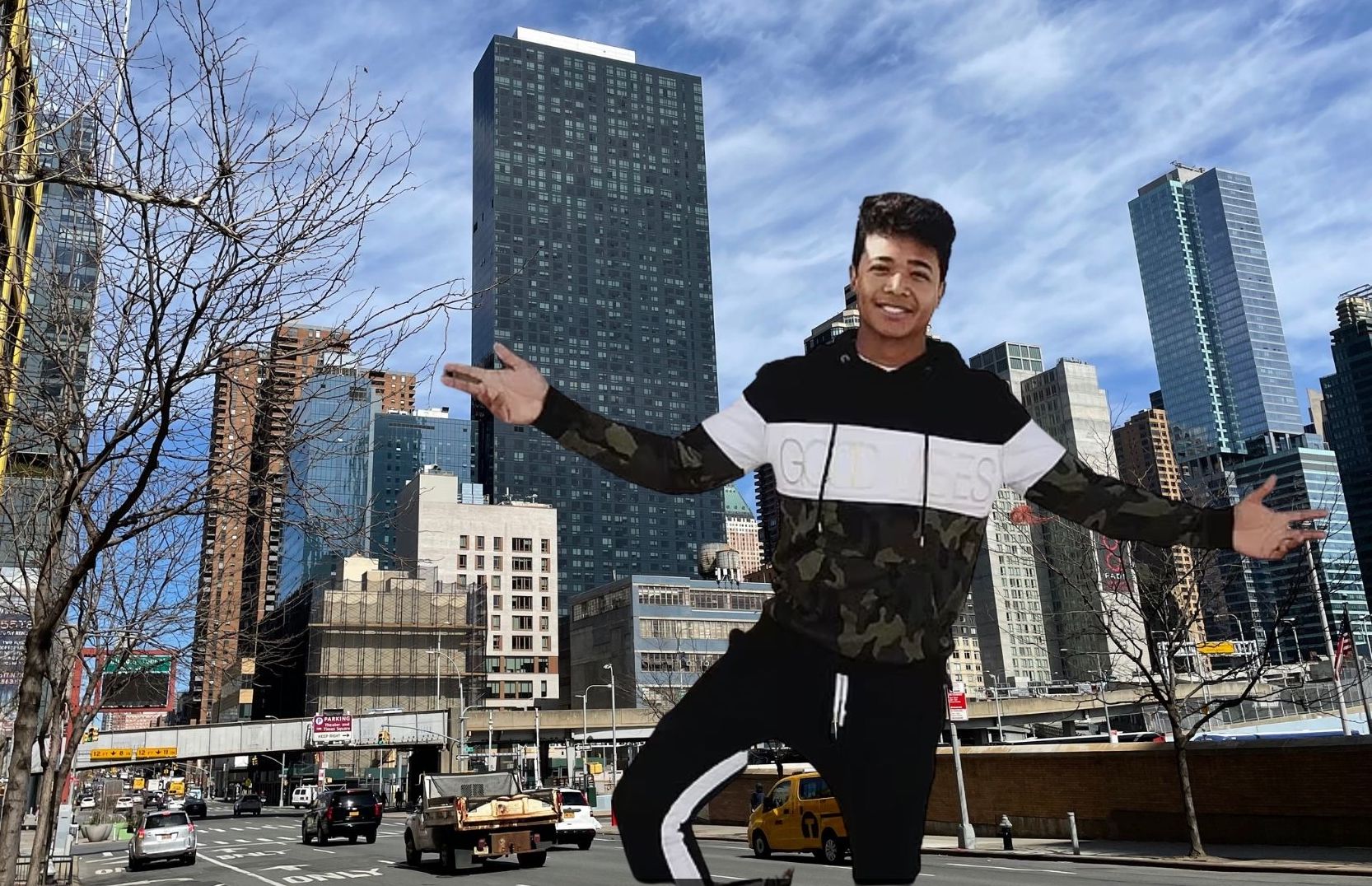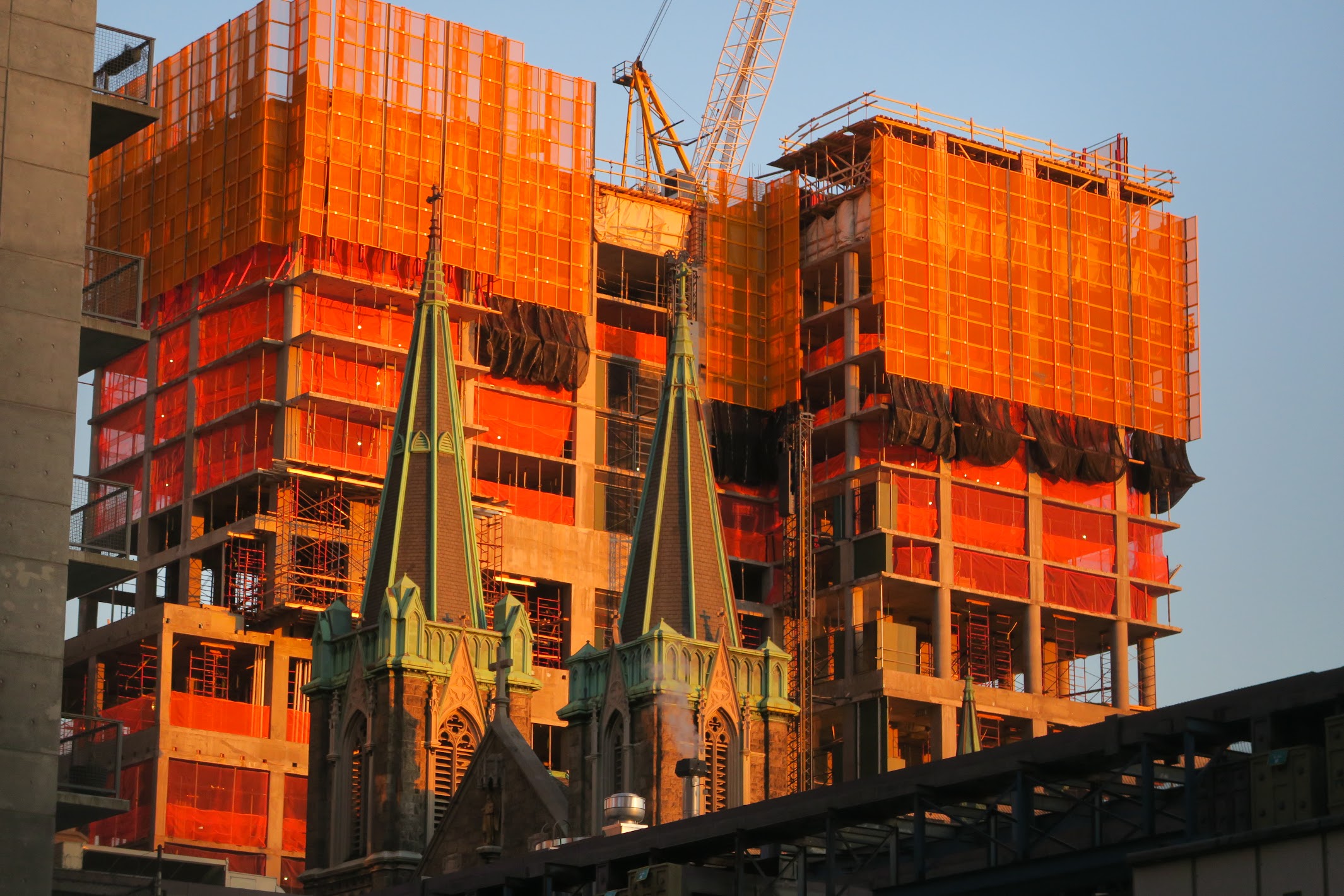Nearly two-thirds of our readers want restrictions on Airbnb — but many oppose the new Local Law 18 that could effectively ban short-term rentals on Airbnb and VRBO in the city, a W42ST survey has revealed.
A marathon public hearing today will give New Yorkers a chance to weigh in on what has proved to be one of Hell’s Kitchen’s most hot-button issues. The session led by the Mayor’s Office of Special Enforcement (OSE) is citywide, but on the West Side the law is dividing opinion.
Ahead of the hearing, W42ST asked hosts and residents about the future of short-term residential rentals. Some respondents described the practice as at best, a nuisance and at worst, dangerous, while others say they will lose income and warn the city will miss out on vital tourism.

But first, what is this new legislation?
The Short-Term Registration Law, also known as Local Law 18, was passed by the City Council last year, and does not actually ban Airbnb rentals. Instead, it requires short-term rental hosts to register with the OSE. The registration process will ensure that hosts abide by the city’s long-standing Multiple Dwelling Law as well as other housing and building-code regulations for hotels, say the OSE — a move which both sides say will remove tens of thousands of short-term rentals from listings.
The law also prohibits booking services like Airbnb from processing transactions for unregistered listings. Local Law 18 is scheduled to become into effect in March 2023.

The new rules will tell Airbnb hosts:
- You cannot rent out an entire apartment or home to visitors for less than 30 days, even if you own or live in the building.
- You must be present during your guests’ stay if it is for less than 30 days.
- You may have up to two paying guests in your household for fewer than 30 days. But every guest has to have free and unobstructed access to every room, and each exit within the apartment.
- Internal doors cannot have locks that allow guests to lock their room behind them. The OSE says locked internal doors create barriers to escaping in an emergency. Breaking the rule can mean everyone in the apartment being handed a temporary vacate order.
- New York State law also prohibits the advertising of an apartment in a Class A multiple dwelling, generally a building with three or more permanent residential units, for rent for any period less than 30 days. Fines for doing so range from $1,000 to $7,500, and will be issued to the person who is responsible for the advertisement — another way to effectively ban Airbnb.
Today’s hearing will address enforcement and allow both sides to speak out at length. The hearing is being streamed on this WebX link, where you can add your comments. In a statement, the OSE said: “We encourage any member of the public to submit testimony at the upcoming public hearing, and will weigh all testimony as we finalize the rules before the law goes into effect.”
How Do W42ST Readers Feel About It?
Hell’s Kitchen is a hotspot for short-term rentals, as seen in screenshots of the Airbnb website and a series of stories reported by W42ST — including in November, when a tenant was sued over accusations he sublet his penthouse for $1,500 a night on Airbnb, listing it as “paradise,” while bilking the landlords for rent totaling $246,000.
In our snapshot survey, a third (33.3%) of the 75 W42ST respondents opposed the new legislation, while nearly two-thirds (61.3%) supported the new regulations, citing safety concerns, landlords who have hoarded apartments for the purpose of Airbnb and a shortage of affordable housing for full-time New Yorkers as overwhelming the short-term rental market.

Reader Paul Briscoe told us: “Local Law 18 is not well thought out and lacks nuance. Single family homeowners should not be lumped in with multi-family housing and LLCs.” Another reader told us anonymously: “It is not about renters — it is actually landlords who do Airbnb and devoid the citizens of affordable housing or drive the prices up for entire rental market by decreasing the supply.” A reader, who identified themselves as Eo, said: “Airbnb is an exploitation enterprise run by the few who own/manage many apartments: they take advantage of building amenities paid by others, pose huge security risks, don’t pay the taxes due by hotels and evade income taxes.”
“Airbnbs Make Affordable Housing Crisis Worse”
Many cited the city’s intense housing shortage as reason enough to stop more rentals. Reader Holli S said: “There’s a lack of affordable housing in HK, and the warehousing of apartments and use of Airbnb contributes to this.”
Gene Walton, who lives outside the city, said: “These short term rentals have grown so much that they have taken off the market a great number of affordable apartments. The original idea of Airbnb has morphed into a new hotel market, without all the regulations and guarantees.”

Safety was a top concern for those who opposed the rule, with several respondents noting that on Airbnb and VRBO there is “No vetting of renters; and it poses danger to resident neighbors.” Reader Kevin wrote: “I live in and know many apartment buildings where residents are doing this (iIlegally)… and the majority of time, it created problems with these new transient ‘guests’ (who are NOT ‘guests’). Plus, with the upswing in crime in the city, it is nice to know who actually lives in your building.”
Others argued that short-term rentals were more than just a black and white concern. “It’s not an easy issue,” said reader Beth Hallo. “Yes, residents should be able to rent out part of their apartments but that should be regulated, i.e. the owner should be on the premises. Landlords should not be able to use apartments in their buildings as Airbnbs. Permanent tenants are inconvenienced by temporary tenants, i.e. keeping odd hours, noise, garbage, etc.”

“If people own their apartments, they should be allowed to rent out a space through Airbnb, but only if the owner(s) are staying in the apartment also,” added reader George. “But since that would be difficult to monitor and would most likely be abused, it would be safer to ban Airbnb. It is dangerous to have unaccountable strangers with access to our buildings. It should never be allowed in rent controlled or rent stabilized apartments.”
“I feel both ways about Airbnb guests in NYC apartments,” added reader Jamie Brown. “On one hand, it’s a necessary evil in order to survive for many people. On the other hand, as a neighbor, I don’t love not knowing who’s coming in and out of my building.”
MORE HELL’s KITCHEN RENTAL NEWS
“I Airbnb Because I Barely Make Ends Meet”
Many New Yorkers who host through Airbnb agreed, telling W42ST that renting was primarily a financial consideration. Most hosts asked to remain anonymous, saying they feared they would be targeted by the OSE.
Readers in support of short-term rentals cited the financial lifeline the service provides in an exceptionally high cost-of-living city. Said one, “As a recent homeowner, I barely make ends meet. I’ve completely eliminated all non-essential expenses in the last 4-5 years and with prices of everything going up, I need to be able to make some extra income if I want to be able to pay my mortgage. I find that homeowners have been under constant attack from local NYC politicians who would rather have everyone live in NYCHA if they could have their way.”

One Hell’s Kitchen host – a senior who has lived in the neighborhood for nearly 50 years – feels there must be a better solution for hosts like her, who use short-term rentals as a means to supplement senior benefits. “I’m 81, and my Social Security doesn’t even cover what I pay for maintenance here,” said the host, who asked to remain anonymous. She currently owns two adjacent apartments with a door connecting them, living in one and renting out the other.
For her own safety, she usually keeps the connecting door locked, but under the current regulations would not be able to do so should she want to keep hosting. “When I first started doing Airbnb, I actually had them in my own apartment and I had some things stolen,” she added, “I decided that I needed to have my own section.”
The senior told W42ST: “I host responsibly,” adding that in addition to owning her units, the other tenants in the building know that she hosts. Sheencourages guests to respect the building and surrounding neighborhood, and to support the local economy.
“My guests feel that they’re in a real New York space and not an anonymous hotel room,” she told W42ST. “They love the fact that I have my own art in there. They love the fact that I have books there. They feel that it’s the real deal – the people living upstairs are musicians, and they hear people playing the piano and singing — so they feel that their experience as a tourist is enhanced by being in a real New York City apartment.”
One host who was willing to be partially named, Ilan R, from the Upper West Side, told W42ST that he believed there could be more nuance to the current laws, to take responsible New York hosts into account.
“My wife and I live in a fairly large apartment that we own here on the Upper West Side,” he told W42ST. “We have extra rooms that we don’t need ourselves, that we use when family visit or when friends come in from out of town — but when they’re not, it seems wasteful not to have them available to others to use. We use the supplemental income to cover things like the very high property taxes that we see here in New York.”

Ilan told W42ST: “The OSE is taking basically all of the requirements that might apply — regardless of which of those situations you fall into, and then combining them to [create] a situation where the registration system combined with this very complex matrix of laws means that almost nobody can host anymore. Because in order to get approved, you’d have to comply with all the laws, and if you comply with all the laws — you basically don’t exist.”
Responding to questions about those who have rented rent-controlled and other stabilized properties far beyond their own rent, “I don’t think anybody thinks it’s appropriate for you to take a rent-controlled apartment where you’re paying way less than the market rate and charging thousands of dollars,” said Ilan, adding that even those who were involved with drafting Local Law 18 had expressed that the everyday host should be able to use Airbnb. “Ben Kallos, the original drafter of this law, told Fox Five that people who want to rent out their primary residence shouldn’t be worried,” he said.
Ilan hopes that today’s hearing will lead to an open forum between hosts and the OSE, and can lead to a compromise which would keep him and other Airbnb hosts in business. “We are asking the city for the opportunity to have a conversation that doesn’t have a big stick on the other end of it and that we can come to an agreement on laws that meet our needs.”
“What I’m Doing is Illegal. But It’s How I Make a Living.”
Other hosts that spoke with W42ST acknowledged that though they were renters – and therefore in violation of the city’s laws by hosting without landlord approval – they were doing their best to host responsibly and even considered it their full-time employment. One Hell’s Kitchen host who lost her job several years ago started renting out a second apartment as a means of staying afloat, and said it had become her new passion.
“I love what I do,” said the host. “I love receiving people, I love taking care of the apartment. So with these new restrictions I’m going to lose my job and all of my income.”
While she was aware that “there are really bad hosts out there, I’m very careful,” the host said. “When my guests arrive, I go downstairs, I pick them up immediately when they arrive.” She admitted that “I instruct them not to talk to neighbors,” as the other tenants in her building don’t know she is hosting. “If neighbors ask, I tell them to say you’re my friend, that you’re staying with me,” she added. “I’m very meticulous and instruct them not to say, ‘Oh, I rent this apartment on Airbnb.’”

She has had issues with guests. “During the pandemic when all of the borders closed, I could only rent to local people and I had to lower the price,” she said. “I was renting for like $125 a night, and it lowers the quality of the people. I had problems and I had to call the police. But at least Airbnb knows and cancels the reservation – it’s a support system.” She added, “After the pandemic finished and I started getting my regular customers back, I had no problems at all.”
The host argued that should the new regulations prevent hosts from renting, they’ll still need to make money and will turn to other avenues. “If I cannot get rid of my lease, I’ll have to keep renting directly and a lot of folks are going to be doing the same – they’re going to try to go through Facebook or Instagram, which the city won’t be able to stop.”
In the meantime, she plans to find a way to host, no matter the outcome. “What I’m doing is illegal, but it is the way that I make a living.”
But What About the Tourists?
One Airbnb host who also manages his building said Airbnb is an attractive platform to bring tourism to the city, and he supports the practice in general. “Three-bedroom, two-bath options are extremely expensive at regular hotels and very hard to find,” he said. “Staying at multiple rooms at hotels certainly isn’t cheap either. They want tourists to come back? They really shouldn’t attack Airbnb like this. Tourists who use Airbnb are not the same audience that regular hotels target.”

He added that should the city force hosts to move to an over-30-day rental policy, there is another safety risk — squatters. “One of my fellow hosts pointed out to me that NY law allows anyone staying for 30 or more days to become a squatter — and if they don’t want to leave, I’d have a hard time evicting them,” he said.
Some readers told W42ST that as guests, they prefer to stay in Airbnb and appreciate the selection available in the city. Said Ibrahim: “This law is really unreasonable for New Yorkers, and too far ranging and allows no room to be flexible. I’m someone who enjoys a fabulous stay in an Airbnb home in New York as a short term rental. Having my own space was and will always be crucial. I don’t want to stay in a hotel as I need the amenities of an apartment and I 100 percent wouldn’t like to share with anyone so I rent the place to myself.”
For One West Sider, This is Personal
Hell’s Kitchen resident Tom Cayler, a founding member of the Illegal Hotels Committee on the West Side Neighborhood Alliance, told W42ST that he and others started the group in 2004 after “we started getting calls from people in regular Hell’s Kitchen tenements saying, ‘How come every weekend, I’ve got 15 Italian tourists living in the unit up above me?’ And what we could tell was that Hell’s Kitchen, because of its location in relationship to Times Square, is Ground Zero for illegal hotels.”
For Cayler, the issue quickly became personal. Twenty years ago, “Our owner decided to put in a bed and breakfast in our building,” said Cayler. “We objected, they got a violation for illegal conversion of a space, and the owner sent a registered sex offender to threaten my then-nine-year-old.”
“That precipitated me getting the guy arrested,” said Cayler, “and it also precipitated me getting to know the people at the Mayor’s Office of Special Enforcement. They saved our lives.” The situation made Cayler realize he wasn’t the only one in the neighborhood with this problem, and he began his campaign against short-term rentals.
But the emergence of Airbnb and VRBO transformed the problem from rare to widespread, prompting his long-term work to pass Local Law 18, which, he points out, does not itself ban short-term rentals. “Local Law 18 did not in any way, shape or form change any of the laws that have to do with housing in New York City regulated by the Multiple Dwelling Law,” he said. “Under the Multiple Dwelling Law, you may in fact have boarders for less than 30 days, as long as it is your primary residence and you are onsite. You either follow the law or you don’t.”

At last month’s public hearing about the regulations, “There were a raft of hosts whose bitch was that they don’t create a problem, and that they should be allowed to continue to break the law – that was their position,” said Cayler. “People say, ‘If I can’t rent it out like this, then I can’t pay for my apartment.’ It’s like, well, you know, that’s a problem that every New Yorker I know has.
“The logic of, ‘because I can’t pay my rent, therefore I have to be allowed to do something that’s illegal – Okay, well then sell drugs on a school ground,” said Cayler. “Their argument was all, ‘I’m a nice guy and I’m doing this right,’ but you’re not a nice guy. You’re breaking the law.”
Cayler said the Illegal Hotel Committee “ain’t going away — this is our town. It doesn’t belong to these platforms doing any goddamn thing they want in our city. They’re a big multi-million, multi-billion dollar corporation, and we’re nobody — we have no money, and we’ll never go away. That’s what you have to deal with.”
Want to weigh in? You can join the Office of Special Enforcement’s public hearing today (Wednesday, January 11 2023) from 1pm to 8pm.




AirBnB has long been a problem in my building. BnB hosts make deals with landlords who take a cut. Cayler’s group – which shills for landlords – did the bidding of Chris Quinn, Corey Johnson and presumably now Bottcher. They do nothing. I’ve complained to them many times.
If you have to rent out your Hell’s Kitchen apartment to make a living, I don’t know what to tell you other than you probably should seek residency somewhere else.
As a AirBnB guest I’ve often stayed in a spare room with the host living elsewhere in the apartment. So what are some of these hosts talking about, that no one can possibly comply with this law? I don’t see how it would be a problem for the host with multiple bedrooms.
And for the people who own extra apartments and rent them out, why couldn’t they just take on a long-term tenant?
The fines needs to be higher. There will be fake leases and fake certifications submitted to Airbnb. They’ve made it clear they won’t self police. This is very dangerous. In fact, I had an NYPD detective knock on my door because a criminal beat up and robbed a guy of his phone and wallet. The criminal used the victim’s Airbnb account to rent the Airbnb above me. I’m lucky I wasn’t beat up or robbed when they were in my building. The landlord has eviction proceedings pending against the tenant who is on Airbnb, but I see random people going up to the apartment. OSE has come out twice but says they can’t get access. So essentially there’s no enforcement. Meanwhile the tenant is renting this place for thousands a night.
I live in a first floor apartment in a walk up building with a tenant running several airbnb’s on higher floors. The airbnb guests block my door with luggage, constantly buzz me for building entry and even wake me up in the middle of the night when their keys don’t work. I’d be thrilled to see them gone!
There’s a reason why landlords go the Airbnb route….because NY allows tenants to be squatters for long periods of time, a liability for a business. Additionally by the time the tenant does leave there’s is substantial damage to the apartment, another cost for the landlord to eincur. Renting to tenants has to have better regulations in order to entice landlords to do long term rentals.